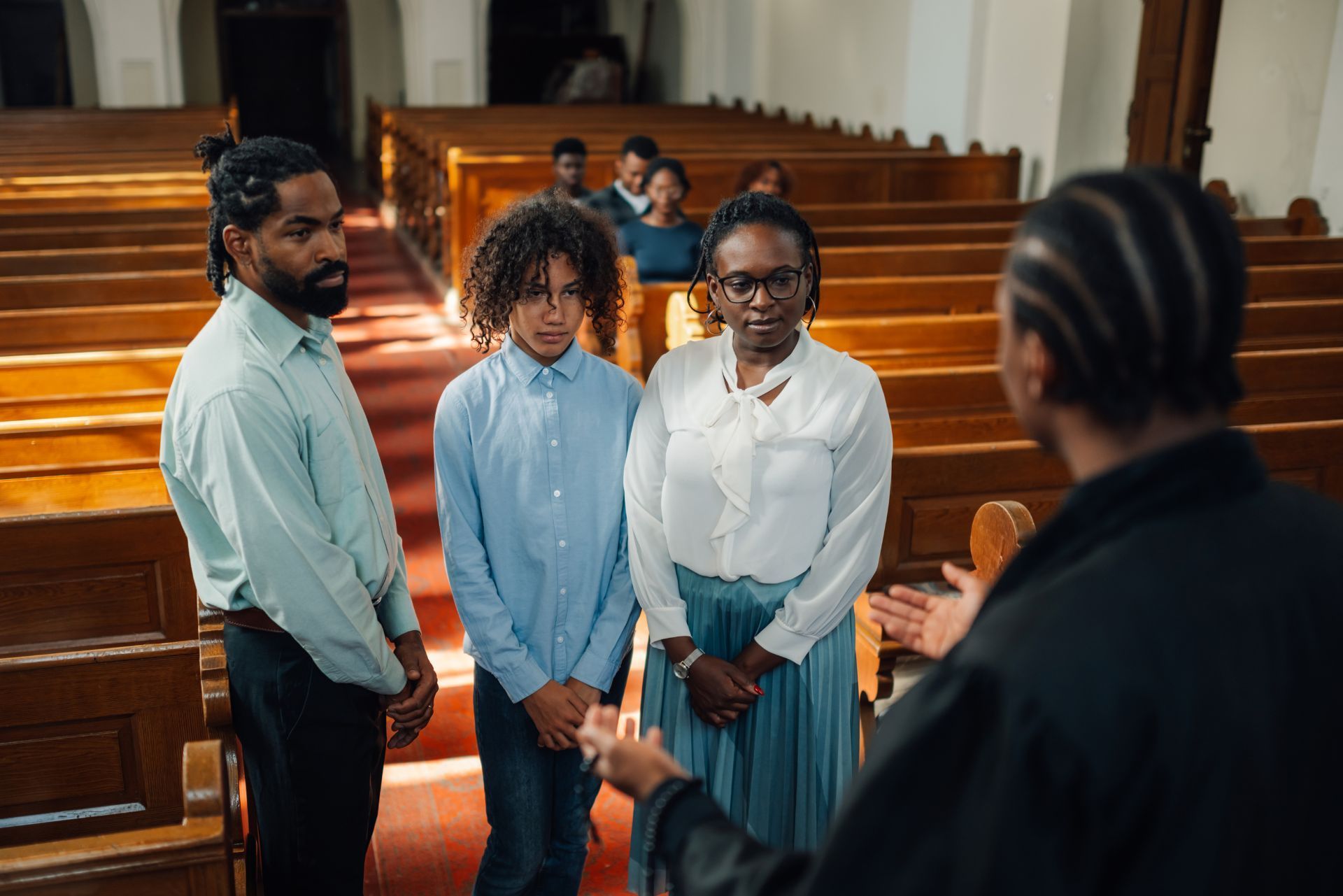
Top 3 Recommended Policies

In the heart of Texas, churches serve as vital community hubs, providing spiritual guidance and support. However, like any other organization, churches face unique risks and challenges that can jeopardize their operations. This is where church insurance comes into play. Understanding the ins and outs of Texas church insurance is crucial for safeguarding these sacred institutions. This comprehensive guide will cover everything you need to know about church insurance in Texas.
Understanding Church Insurance
Church insurance is a specialized form of coverage designed to protect religious organizations from various risks. It encompasses a range of policies tailored to meet the unique needs of churches, including property damage, liability claims, and more. With the right insurance, churches can focus on their mission without the constant worry of financial loss due to unforeseen events.
What Does Church Insurance Cover?
The coverage provided by church insurance can vary widely depending on the specific policy and insurer. However, there are several common components that most church insurance policies include:
- Property Insurance: This covers damage to the church building and its contents due to events like fire, theft, or natural disasters.
- Liability Insurance: This protects against claims arising from injuries or accidents that occur on church property.
- Workers' Compensation: This provides coverage for employees who may be injured while performing their duties.
- Auto Insurance: If the church owns vehicles, this coverage is essential for protecting against accidents involving those vehicles.
Why Is Church Insurance Important?
Church insurance is not just a legal requirement; it is a crucial aspect of risk management. Churches often face unique challenges, such as hosting large gatherings, which can increase the likelihood of accidents. Without adequate insurance, a single incident could lead to significant financial strain or even bankruptcy.
Additionally, churches are often seen as community resources, making them targets for vandalism or other crimes. Insurance helps mitigate these risks, ensuring that the church can continue its operations and serve its community effectively.
Moreover, the emotional and spiritual impact of a church's activities cannot be overstated. Churches provide a sanctuary for worship, community events, and support services, and their loss can be deeply felt by the congregation and the wider community. With comprehensive insurance coverage, churches can safeguard their ability to offer these essential services, ensuring that they remain a pillar of support during challenging times. This peace of mind allows church leaders to focus on their spiritual missions rather than getting bogged down by potential financial liabilities.
Furthermore, many church insurance policies also include coverage for specialized programs and activities, such as youth camps, mission trips, and community outreach initiatives. These programs often involve additional risks, and having the right insurance can protect against unforeseen circumstances that could jeopardize their success. By investing in church insurance, religious organizations not only protect their physical assets but also uphold their commitment to serving their congregations and communities with confidence and resilience.

Types of Church Insurance Policies
There are several types of insurance policies available specifically for churches. Each type addresses different risks and needs, allowing churches to customize their coverage. Here are some of the most common types:
General Liability Insurance
General liability insurance is one of the most critical policies for any church. It protects against claims of bodily injury, property damage, and personal injury that may occur on church premises. This coverage is essential for safeguarding the church's financial future, as legal claims can be costly and time-consuming. Additionally, events such as community gatherings, youth activities, or even simple church services can expose the church to various liabilities. By securing general liability insurance, churches can ensure they are prepared for unexpected incidents, allowing them to focus on their mission rather than worrying about potential lawsuits.
Property Insurance
Property insurance covers the physical assets of the church, including the building, furniture, and equipment. This policy typically protects against risks such as fire, theft, and vandalism. In Texas, where severe weather events like hurricanes and tornadoes can occur, having robust property insurance is vital for ensuring the church can recover quickly from any damage. Furthermore, property insurance can also extend to cover loss of income due to business interruption, meaning that if a church is temporarily unable to operate due to a covered event, it can still maintain financial stability. This aspect of property insurance is particularly important for churches that rely on regular donations and community support to sustain their operations.
Professional Liability Insurance
Also known as errors and omissions insurance,
professional liability insurance protects church leaders and staff against claims of negligence or misconduct in their professional duties. This type of coverage is particularly important for churches that offer counseling or educational services, as it can shield them from legal repercussions if a member feels they were harmed by the advice or services provided. In addition to counseling, this insurance can also cover situations involving pastoral care, youth ministry, and other specialized programs. By having professional liability insurance, churches can foster a safe environment for their congregation, knowing they have the necessary protection in place to handle any claims that may arise from their professional interactions.
Factors Influencing Church Insurance Costs
The cost of church insurance can vary significantly based on several factors. Understanding these factors can help churches make informed decisions when selecting coverage. Here are the primary elements that influence insurance premiums:
Location
The geographic location of the church plays a significant role in determining insurance costs. Churches situated in areas prone to natural disasters, such as floods or hurricanes, may face higher premiums due to the increased risk of property damage. Additionally, urban churches may encounter higher liability risks due to the larger number of visitors. Local crime rates can also affect insurance costs; areas with higher vandalism or theft rates may lead to increased premiums as insurers account for the potential loss of property.
Size and Structure of the Church
The size and structure of the church can also impact insurance costs. Larger buildings may require more extensive coverage, leading to higher premiums. Similarly, older buildings may be more susceptible to damage and could incur additional costs for repairs and maintenance, influencing the overall insurance rate. The materials used in construction can also play a role; for instance, churches built with fire-resistant materials may qualify for lower premiums compared to those constructed with more flammable materials. Furthermore, the presence of unique architectural features, such as stained glass windows or historical elements, may necessitate specialized coverage, further affecting the overall insurance costs.
Activities and Programs
Churches that host a wide range of activities, such as youth programs, community events, or sports leagues, may face increased liability risks. Insurers will assess the types of activities offered when determining premiums. Churches with a more extensive range of programs may need to invest in additional coverage to protect against potential claims. Additionally, the involvement of volunteers in these activities can introduce further liability considerations, as the church may be held responsible for any accidents or injuries that occur during events. It’s essential for churches to maintain accurate records of their activities and to communicate openly with their insurance providers about any changes in programming, as this transparency can help ensure that they are adequately covered and potentially lower their premiums.
Choosing the Right Insurance Provider
Selecting the right insurance provider is a crucial step in securing adequate coverage. Churches should consider several factors when evaluating potential insurers:
Reputation and Experience
It is essential to choose an insurance provider with a solid reputation and experience in the church insurance sector. Researching customer reviews and seeking recommendations from other churches can help identify reliable insurers. A provider with a proven track record in handling claims efficiently is invaluable. Additionally, it may be beneficial to check if the insurer is a member of relevant industry associations, as this often indicates a commitment to high standards and ethical practices. Engaging with local congregations can also provide insights into the insurer's reliability and responsiveness in times of need.
Policy Options and Flexibility
Different churches have varying needs, so it is crucial to find an insurer that offers customizable policy options. A flexible provider will allow churches to tailor their coverage to suit their specific requirements, ensuring they are adequately protected without paying for unnecessary extras. For instance, some churches may require coverage for unique events, such as community outreach programs or seasonal festivals, which may not be included in standard policies. Understanding the nuances of these options can empower church leaders to make informed decisions that align with their mission and activities.
Customer Service and Support
Excellent customer service is vital when dealing with insurance matters. Churches should look for providers that offer responsive support and assistance throughout the policy lifecycle. This includes help with claims processing, policy updates, and general inquiries. Furthermore, it's beneficial to assess the availability of dedicated representatives who understand the specific challenges faced by churches. Having a knowledgeable contact person can make a significant difference during stressful situations, such as after a loss or damage incident. Additionally, some insurers may offer educational resources or workshops to help church leaders better understand their coverage and risk management practices, fostering a proactive approach to insurance management.
Common Exclusions in Church Insurance Policies
While church insurance provides essential coverage, it is important to be aware of common exclusions that may apply. Understanding these exclusions can help churches avoid unexpected gaps in coverage:
Acts of God
Many insurance policies include exclusions for acts of God, such as earthquakes or floods. Churches located in areas prone to such events may need to purchase additional coverage to protect against these specific risks. It's crucial to review the policy carefully and consider supplemental insurance if necessary. Additionally, churches should engage in risk assessment practices, including evaluating their geographical location and historical data on natural disasters. This proactive approach not only aids in selecting the right insurance but also helps in implementing disaster preparedness plans, ensuring that the congregation is well-equipped to respond in the event of a catastrophe.
Intentional Acts
Insurance policies typically do not cover damages resulting from intentional acts or criminal activities. This means that if a church member intentionally causes harm or damage, the insurance provider may deny the claim. Churches should implement safety protocols and security measures to minimize the risk of such incidents. Furthermore, fostering a strong community culture can deter negative behaviors; engaging congregants in discussions about ethics and accountability can create an environment where everyone feels responsible for maintaining the church's integrity. Regular training sessions on conflict resolution and community engagement can also be beneficial in preventing disputes that might lead to intentional harm.
Wear and Tear
Standard property insurance does not cover damages resulting from normal wear and tear. Churches are responsible for maintaining their facilities and addressing issues like roof leaks or aging infrastructure. Regular maintenance and inspections can help mitigate these risks and prevent costly repairs. In addition to routine upkeep, churches might consider establishing a dedicated maintenance fund to ensure that resources are available for unexpected repairs. By involving the congregation in fundraising initiatives or volunteer work days, churches can foster a sense of ownership and pride in their facilities, while also ensuring that the buildings remain safe and welcoming for all members and visitors.
Tips for Reducing Church Insurance Costs
While church insurance is essential, there are several strategies that churches can employ to reduce their insurance costs without sacrificing coverage:
Implementing Safety Measures
Investing in safety measures can significantly reduce liability risks. This includes installing security systems, conducting regular safety training for staff and volunteers, and ensuring that the premises are well-maintained. By demonstrating a commitment to safety, churches may qualify for discounts on their insurance premiums. Additionally, churches can consider conducting risk assessments to identify potential hazards on their property. Engaging volunteers in safety committees can foster a culture of safety within the congregation, encouraging everyone to take an active role in maintaining a secure environment.
Bundling Policies
Many insurance providers offer discounts for bundling multiple policies. Churches can save money by combining property, liability, and auto insurance into a single policy. This not only reduces costs but also simplifies management by having a single provider for all insurance needs. Furthermore, bundling can enhance coverage options, as insurers may offer additional benefits or tailored packages specifically designed for religious organizations. This approach can also streamline the claims process, making it easier for churches to navigate any incidents that may arise.
Regularly Reviewing Coverage
Churches should regularly review their insurance coverage to ensure it aligns with their current needs. As the church grows and changes, its insurance requirements may also evolve. Conducting annual reviews can help identify areas where coverage can be adjusted or improved, potentially leading to cost savings. In addition to annual reviews, churches might consider seeking the expertise of an insurance broker who specializes in nonprofit organizations. These professionals can provide insights into emerging risks and recommend adjustments that reflect the church's mission and activities, ensuring that the coverage remains relevant and cost-effective.

Conclusion
Texas church insurance is an essential component of protecting religious organizations from a myriad of risks. By understanding the various types of coverage available, the factors influencing costs, and the importance of choosing the right provider, churches can make informed decisions that safeguard their operations and communities.
Investing in comprehensive insurance not only protects the church's assets but also ensures that it can continue its mission without the burden of financial uncertainty. With the right coverage in place, churches can focus on what truly matters: serving their communities and fostering spiritual growth.
For churches in Texas, taking the time to understand and secure the appropriate insurance coverage is a vital step toward ensuring a stable and secure future.
Contact Us

